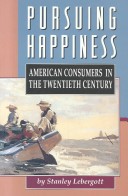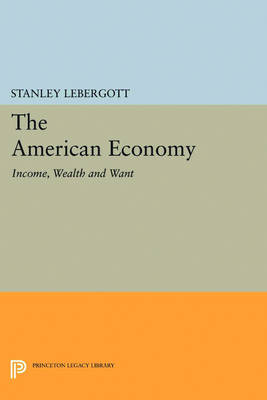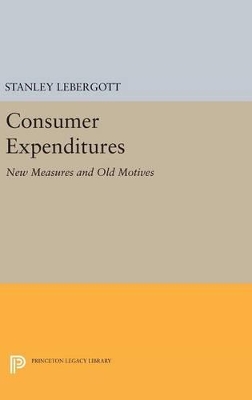Princeton Legacy Library
4 total works
Whether watching baseball or undergoing heart surgery, Americans have bought a variety of goods and services to achieve happiness. Here is a provocative look at what they have chosen to purchase. Stanley Lebergott maintains that the average consumer has behaved more reasonably than many distinguished critics of "materialism" have suggested. He sees consumers seeking to make an uncertain and often cruel world into a pleasanter and more convenient place--and, for the most part, succeeding. With refreshing common sense, he reminds us of what many "luxuries" have meant, especially for women: increased income since 1900 has been used largely to lighten the backbreaking labor once required by household chores.
Originally published in 1993.
The Princeton Legacy Library uses the latest print-on-demand technology to again make available previously out-of-print books from the distinguished backlist of Princeton University Press. These editions preserve the original texts of these important books while presenting them in durable paperback and hardcover editions. The goal of the Princeton Legacy Library is to vastly increase access to the rich scholarly heritage found in the thousands of books published by Princeton University Press since its founding in 1905.
Every economic system exists only to satisfy human wants, yet most systems fail to do so. Taking a keen look at the gap between goal and result, Stanley Lebergott appraises public policies relating to the U.S. distribution of income and wealth today.
Part I shows that many programs have disappointed their proponents because certain basic assumptions were not understood. The author's new data suggest more realistic answers to much-debated questions: Are the rich getting richer? How much "upward mobility" exists? What approaches to poverty, starvation, and discrimination are practical today?
In Part II, size distributions are derived for wealth in 1970, for income in 1900, and for white and non-white income for the period 1900-1970. These data include new estimates for key items in the standard of living since 1900, with detail on services that have dominated the "postindustrial" economy.
Originally published in 1976.
The Princeton Legacy Library uses the latest print-on-demand technology to again make available previously out-of-print books from the distinguished backlist of Princeton University Press. These editions preserve the original texts of these important books while presenting them in durable paperback and hardcover editions. The goal of the Princeton Legacy Library is to vastly increase access to the rich scholarly heritage found in the thousands of books published by Princeton University Press since its founding in 1905.
In other essays he uses the new data to demonstrate that the supposed "flawed prosperity" of the 1920s was not responsible for the Great Depression; points out the limitations of the usual consumer budget surveys; and contrasts the role of age, nativity, and other factors in creating interstate differences. The new data, which link to the official BEA estimates, will provide raw material to test and extend theories of how the consumer and the economy function. Originally published in 1995. The Princeton Legacy Library uses the latest print-on-demand technology to again make available previously out-of-print books from the distinguished backlist of Princeton University Press. These editions preserve the original texts of these important books while presenting them in durable paperback and hardcover editions. The goal of the Princeton Legacy Library is to vastly increase access to the rich scholarly heritage found in the thousands of books published by Princeton University Press since its founding in 1905.



